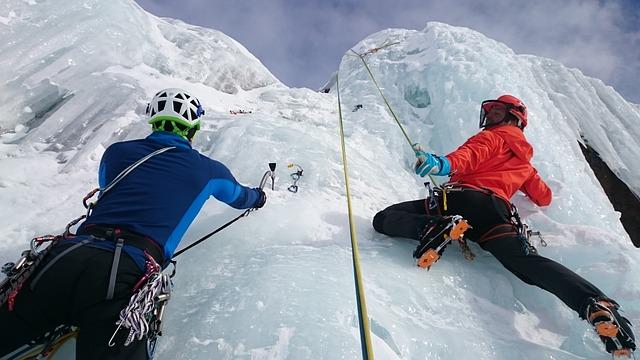In recent years, the world of extreme sports has transcended its roots as a subculture of thrill-seekers and adrenaline junkies, evolving into a multi-billion-dollar industry. At the heart of this transformation lies the proliferation of extreme sports brands, which have adeptly harnessed the rebellious spirit and countercultural ethos of these activities to fuel their marketing strategies. However, as these brands become increasingly mainstream, questions arise about whether they are genuinely championing the authenticity and values of extreme sports or merely exploiting them for commercial gain. This article delves into the complex relationship between extreme sports and the brands that promote them, examining the extent to which these companies may be commodifying the very spirit of rebellion that originally defined these daring pursuits. Through a critical exploration of marketing tactics, sponsorship deals, and brand narratives, we aim to uncover the true impact of corporate influence on the integrity of extreme sports.
The Commercialization of Rebellion in Extreme Sports
In recent years, the once underground world of extreme sports has undergone a significant transformation, with major brands stepping in to capitalize on the rebellious spirit that originally defined these activities. This commercialization has led to a paradox where the ethos of defiance is now being packaged and sold as a mainstream commodity. Extreme sports brands are increasingly positioning themselves as purveyors of the very rebellion they may be diluting, creating a complex relationship between authenticity and consumerism.
Brands achieve this through various strategies, such as:
- Sponsorships of top athletes who embody the daring and nonconformist nature of the sport.
- Marketing campaigns that emphasize the thrill and danger associated with these activities, while often glossing over the grassroots culture.
- Collaborations with influencers and media outlets to portray an image of rebellion that resonates with a broader audience.
While this strategy has expanded the reach and visibility of extreme sports, it raises questions about whether the true spirit of rebellion can survive in a commercialized environment.

Analyzing Marketing Strategies: Authenticity vs. Exploitation
In the high-adrenaline world of extreme sports, the fine line between authenticity and exploitation often blurs. Brands that once celebrated the raw, rebellious spirit of skateboarding, snowboarding, and other extreme activities now find themselves walking a tightrope between maintaining that authenticity and capitalizing on it for profit. The question arises: are these brands truly embracing the ethos of the sports, or merely using it as a marketing tool to increase their bottom line?
Consider the following factors that influence this dynamic:
- Brand Narratives: Many brands craft compelling stories that resonate with the spirit of rebellion and individuality inherent in extreme sports. However, when these narratives are co-opted to serve commercial interests, the authenticity may be diluted.
- Endorsements and Sponsorships: Sponsorships of athletes are essential for growth, yet they can sometimes transform personal achievements into commodified spectacles. This raises concerns about whether the essence of the sport is being compromised.
- Community Engagement: Some brands invest in grassroots movements, supporting local events and initiatives. While this can enhance community spirit, it’s crucial to assess whether these actions are driven by genuine interest or are merely strategic marketing maneuvers.
Striking a balance between genuine engagement and strategic marketing is essential for brands to maintain credibility and truly honor the rebellious spirit they seek to embody.
The Impact of Brand Influence on Extreme Sports Culture
In the realm of extreme sports, where adrenaline and individuality reign supreme, the presence of influential brands has become both a catalyst for growth and a subject of contention. Brands have undeniably contributed to the evolution of extreme sports by providing necessary gear, sponsorships, and global exposure. However, their impact is a double-edged sword. On one hand, they bring legitimacy and resources, allowing athletes to push boundaries and reach wider audiences. On the other hand, the commercial agendas of these brands often clash with the intrinsic rebellious spirit that defines extreme sports culture.
- Commercialization vs. Authenticity: As brands embed themselves deeper into the fabric of extreme sports, the line between genuine passion and commercial exploitation blurs. The risk lies in turning once-underground movements into mainstream commodities, potentially diluting their original essence.
- Cultural Shift: The branding influence can lead to a cultural shift where the focus moves from self-expression and community to profit-driven objectives. This shift raises questions about the sustainability of the sports’ core values in the face of commercialization.
- Brand Dependency: Athletes often find themselves dependent on sponsorships, which can compromise their independence. The pressure to align with brand expectations can stifle creativity and alter the authentic nature of their performances.
While the infusion of brand influence has undeniably expanded the reach and appeal of extreme sports, it also poses significant challenges to maintaining their rebellious, anti-establishment ethos. Balancing commercial interests with the authentic spirit of these sports is crucial for preserving their unique cultural identity.

Strategies for Preserving the True Spirit of Extreme Sports
To safeguard the genuine ethos of extreme sports, it’s essential to focus on maintaining authenticity and fostering community engagement. Brands should prioritize grassroots initiatives that support local events and athletes, rather than solely chasing high-profile sponsorship deals. This not only nurtures talent at the ground level but also keeps the sport accessible and genuine. Transparency in marketing is another key strategy; brands must ensure that their campaigns reflect the true nature and challenges of these sports, rather than an idealized, commercialized version.
- Encourage Community Involvement: Support local clubs and events to strengthen the sports culture.
- Focus on Authentic Storytelling: Share real stories of athletes and their journeys to inspire others genuinely.
- Promote Sustainable Practices: Ensure that the production and promotion processes respect environmental and ethical standards.
- Value Athlete Input: Engage with athletes to guide brand direction and ensure alignment with the sport’s core values.
By implementing these strategies, brands can help preserve the raw and rebellious spirit of extreme sports, ensuring that they remain true to their roots and continue to inspire new generations.










